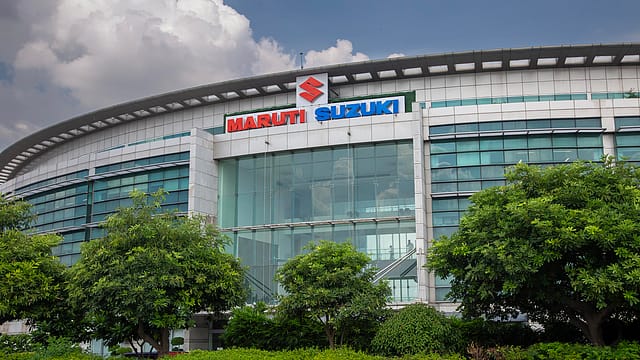Maruti Suzuki slashes near-term EV production due to rare earth magnet crisis: Report
ADVERTISEMENT

India’s leading automobile manufacturer, Maruti Suzuki India Ltd , has reduced its short-term production plans for its first electric vehicle, the e-Vitara, by approximately two-thirds due to a shortage of rare earth materials, newswire Reuters reported.
Maruti Suzuki now intends to produce around 8,200 e-Vitara EVs between April and September, a significant reduction from its initial target of 26,500 units, the report said, citing an official document.
The Japanese carmaker still aims to reach its full-year production target of 67,000 electric vehicles by March 2026, planning to increase output in the later months to make up for the shortfall.
This comes days after Maruti Suzuki said that it does not see any immediate impact of curbs on rare-earth magnets by China.
“If there is any material impact, we will let the stakeholders know,” Rahul Bharti, senior executive officer, corporate affairs, Maruti Suzuki, said at a press conference earlier in June. “It is not a restriction. China has asked for an end-user certificate, established by the industry and endorsed by the government. This certificate then needs to be approved by the Chinese government,” said Bharti. When asked about the runaway the carmaker has before the curbs impact it, Bharti said that Maruti Suzuki has “submitted an important application," and said it will be difficult to “say anything on the matter until it receives a response.”
Maruti Suzuki plans to export the majority of electric vehicles manufactured in its first year of production. Although the Japanese carmaker has been late to the EV race, it plans to leverage exports to become India’s top electric car manufacturer within a year. Japan's Suzuki Motor Corporation (SMC) plans to make India a global manufacturing hub for its EVs.
According to Reuters, Maruti Suzuki warned during a closed-door meeting with the Ministry of Heavy Industries that it may be forced to halt production of one of its car models in early June if the issue remains unresolved.
Maruti Suzuki is not the only automaker being impacted by supply chain constraints on rare earth magnets. Bajaj Auto’s Executive Director Rakesh Sharma recently warned that ongoing supply bottlenecks of rare earth magnets—essential for electric vehicle motors—could seriously disrupt the company’s production schedule by July if the situation doesn’t improve.
A disruption in the supply of rare earth magnets lasting more than a month could affect the production of passenger vehicles, including EVs, potentially slowing the growth momentum of the domestic auto industry, according to Crisil Ratings. If China’s export restrictions and delays in shipment approvals continue, rare earth magnets could become a major supply-side threat to India’s automotive industry.
Rare earth magnets are needed to make electric motors in an electric vehicle.
In a press conference earlier this month, Union Minister of Heavy Industries H. D. Kumaraswamy said that it is preparing to send a delegation of industry executives to China to sort the rare earth magnet supply issue.